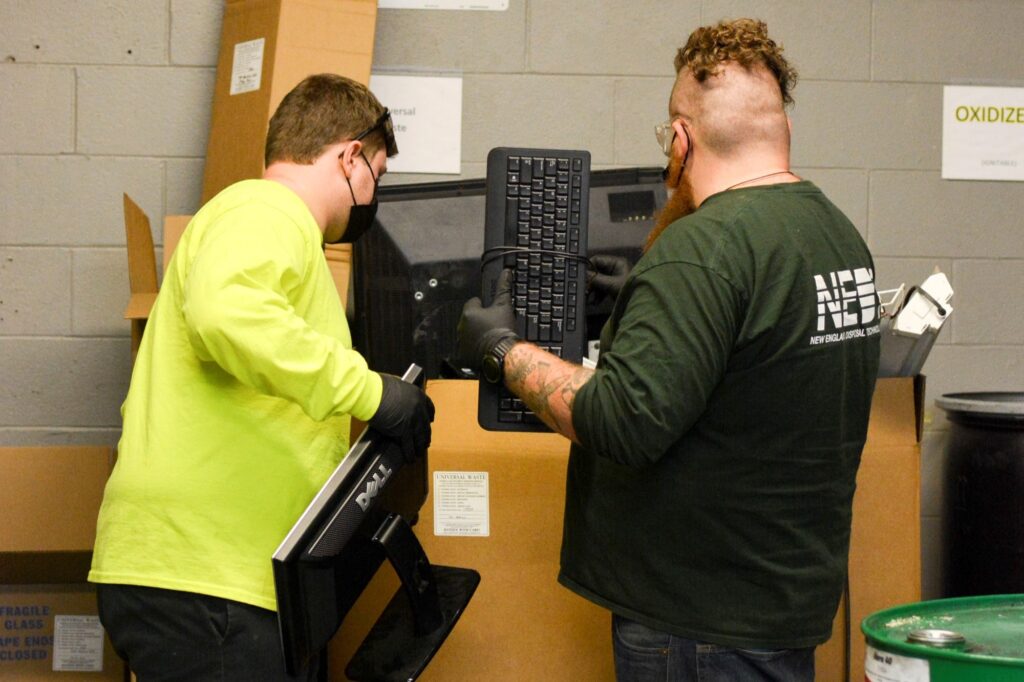Whether it’s the gradual degrading of performance—longer load times, heating issues, or studders—or a sudden, catastrophic failure, at some point, your computer is going to need to be replaced. But what do you do with the old computer? Today we’re looking at what components in computer electronics are hazardous and how this “eWaste” makes computer disposal difficult. Learn more about these everyday household products and your options when it’s time to get rid of them.
The Hazardous Heavy Metals in Computers
Collectively known as eWaste, there are many electronic components that contain hazardous materials—most commonly heavy metals. Learn more about them below.
- Lead: This heavy metal can be found in many electronics and batteries, especially older models. If you have a CRT monitor (see below), it contains a large amount of lead.
- Mercury: A liquid heavy metal, mercury can be found in electronics, both in monitors and in mercury switches, which are often found in laptop computers.
- Cadmium: A heavy metal found in rechargeable computer batteries, contacts, and switches.
All of these metals pose both health and environmental dangers, including leaching into the soil and groundwater. Learn more in our blog, Heavy Metal Hazards in Household Waste.
Dealing with Computer Monitors
Likewise, computer monitors pose similar hazards, as they often contain heavy metals. However, the actual type of hazard does depend on your type of computer monitor. Old CRT (Cathode Ray Tube) monitors come with significant dangers, including storage of large electrical charges even after being unplugged and the pressure stored in the vacuum tubes. Newer monitors don’t come with implosion risks but do contain other kinds of hazardous materials. Know the risks of both old and new computer monitors before disposal.
Batteries in Computer Accessories
As mentioned above, many of these hazardous materials come in the form of batteries. If you have computer peripherals, especially ones that are wireless, they may contain integrated batteries that contain one of the above materials or even lithium. Lithium batteries pose their own risks, especially if overcharged, damaged, or exposed to water. Learn more about the risks of these batteries in our blog, Lithium Battery Disposal: Swelling and Fire Hazards Explained.
Your Computer Disposal Options
So, with all these hazards explained, what are your computer disposal options? As one of the more common forms of regulated hazardous waste, you may have additional options in your state or county. If your computer or computer accessories are still in working order, you may be able to donate them to a non-profit organization. For both of these options, check out our blog, What Are My Options for Disposing of Household Products?
Another great option for those in New England is one of our NEDT Household Hazardous Products Collection Centers! We’re open most days, and we have a home pick-up service for eWaste and many other common kinds of hazardous waste. Contact us to learn more and plan your visit.



Leave a Reply